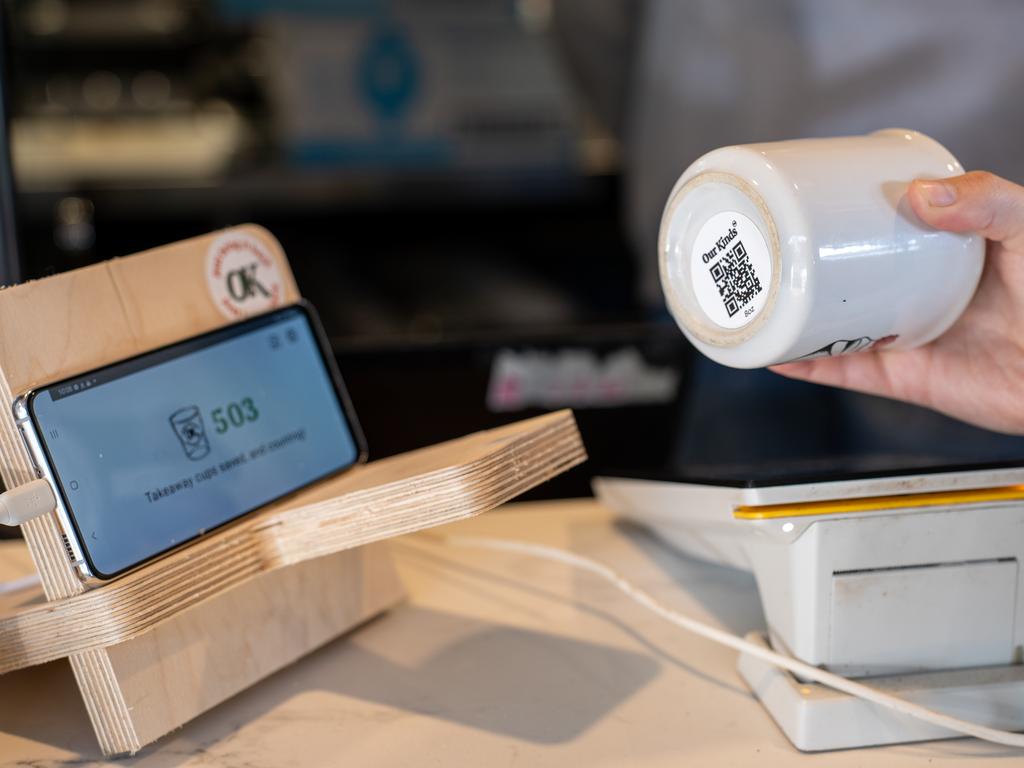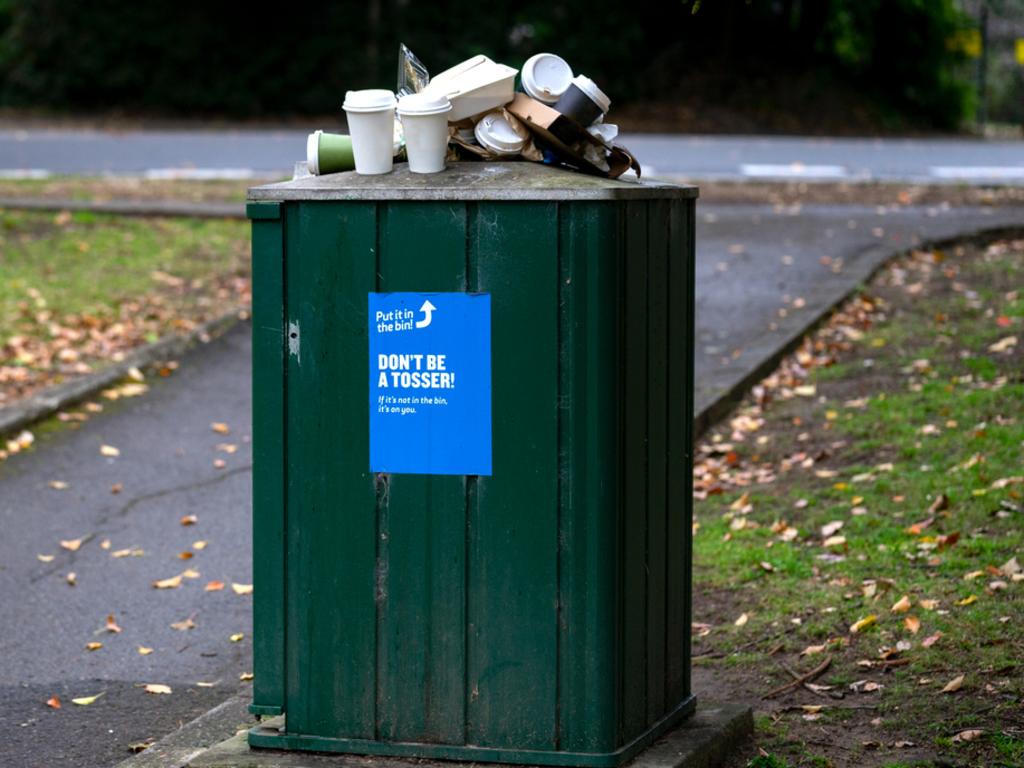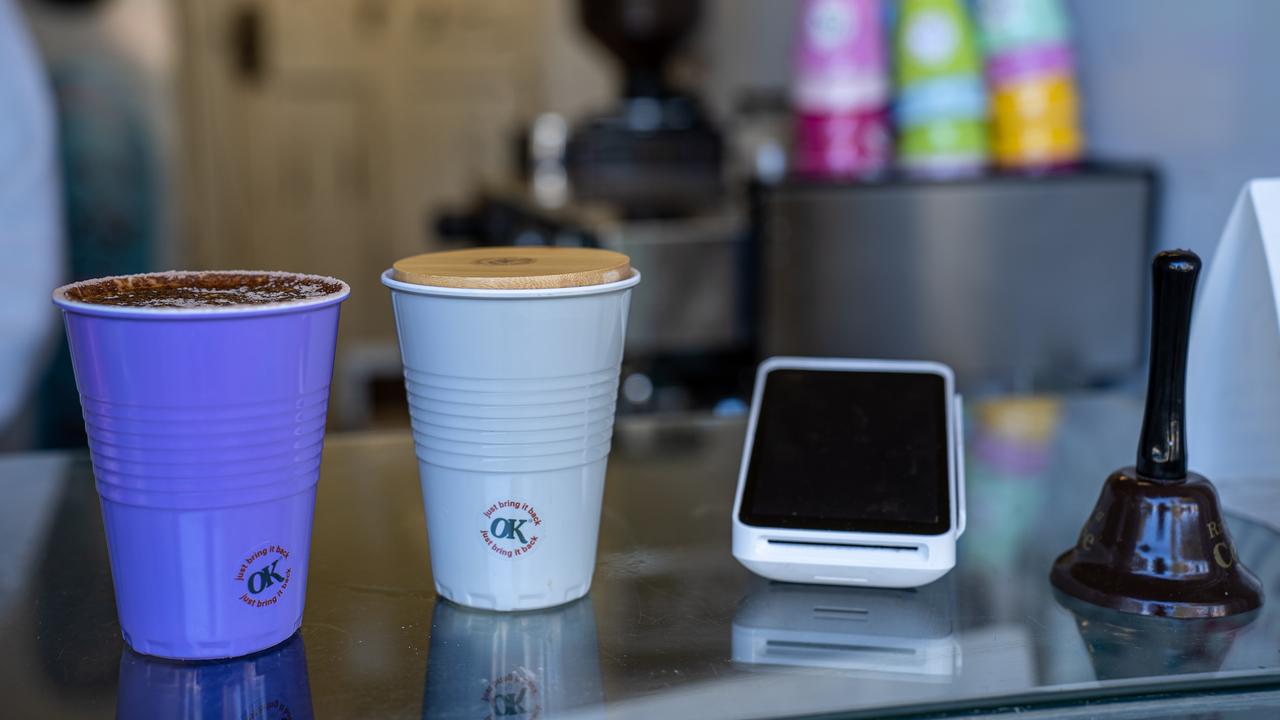Cafes embrace op shop mugs to fix issue with single-use cups
Three states are making moves to ban single-use coffee cups – with many new ways to drink your morning takeaway now emerging.
It has to be said, Aussies love their coffee.
We spend $3 billion on the stuff every year, but with states like South Australia, Queensland and Western Australia looking to ban to single-use coffee cups, customers need to find an alternative way to drink their morning takeaway.
Now the Our Kinds program – a subscription mug service which gives second-hand cups a new lease on life – is attempting to offer a sustainable solution.
The program sees cafes use rescued op shop mugs, with customers simply asked to return the mug next time they visit.
Baristas can also scan a QR code placed on the bottom of each cup to let customers know how many times that particular mug has been reused – and therefore how many disposable cups have been saved from landfill.
A pilot program across 20 cafes in Perth and Fremantle saw 51,000 cups kept out of landfill.
Now, the first Sydney cafe has joined the program with Bondi Beach’s bRU Coffee banning all single-use coffee cups from July 1.
Stream the news you want, when you want with Flash. 25+ news channels in 1 place. New to Flash? Try 1 month free. Offer ends 31 October, 2022 >

Cafes have three subscriptions to choose from: $60, $80 or $120 per week to receive different numbers of cups.
Sandra Beram, the owner of North Bondi’s bRU Coffee, said before the ban the business would sell 156,000 coffees a year and spend $900 a week on cups.
“My customers love seeing how their purchase is making a collective difference to the world. They are even donating coffee cups from their homes they no longer use – and that brings a smile to my face,” Ms Beram said.
Karen Monaghan, co-founder of Our Kinds, said: “Our second-hand, reusable coffee cup solution is simple and a monumental improvement to the other reusable … schemes.
“These are flawed because they rely mainly on introducing brand new or recycled plastic cups to the world – and we need less plastic, not more.”
The only thing customers need to do is bring back their used cup to their local cafe, where it will be professionally washed.
Twelve cafes have been added in total following the pilot scheme.

Retailers look to reduce plastics
Another take on replacing single use coffee cups was to make the product edible.
The invention of edible coffee cups, while not an entirely new concept, has been refined by Melbourne company Good Edi, which began supplying boutique cafes about a year ago.
One of the company’s 50 clients is family-owned Adelaide business The Coffee Bean Shop, which launched the eight ounce (237ml) edible cups at its Central Market and roasting facility in Welland this week.
The cups, which carry a similar volume to the outlet’s “regular” coffee size, have been wildly popular since they became available, owner Frank Mitolo told news.com.au earlier this month.

“People are very conscious of the green movement. The response has been phenomenal,” Mr Mitolo said.
He said, like his business, his customers were becoming increasingly mindful of the impact their consuming was having on the environment.
Mr Mitolo said the product also breaks down, so if the customer chooses not to eat the cup it is biodegradable.
He suspected that as more momentum built among retailers and consumers, the $1.50 price per cup would likely come down.
In other attempts to become more environmentally friendly, supermarket giants Coles and Woolworths have ditched their plastic collectables ranges.
Coles announced their Magical Builders range, which consists of characters from Harry Potter and Fantastic Beasts are made completely out of cardboard.
Meanwhile, Woolworths’ Fix Ems range is of Disney, Star Wars, Marvel and Pixar characters in the form of woven patches.





